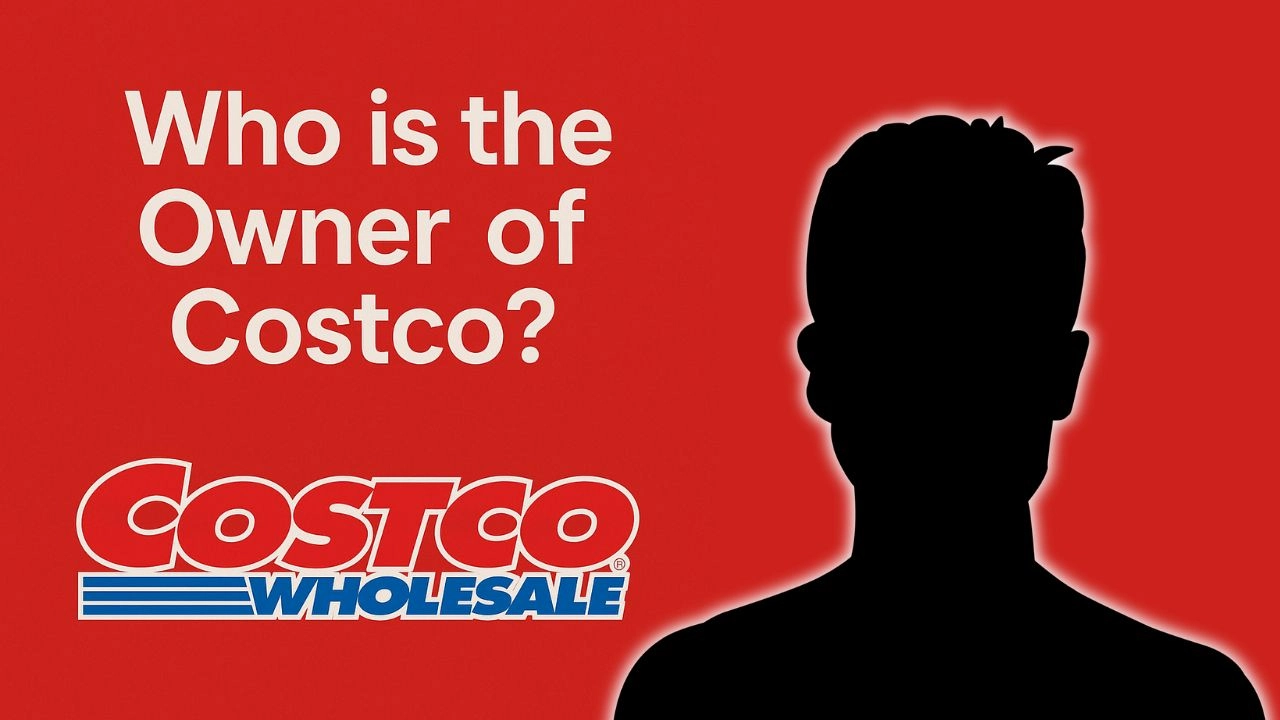Costco is one of the world’s largest and most respected warehouse club retailers. Costco became one of the top three retail chains in the country, along with Walmart and Target. But who owns Costco today? Let’s explore the current ownership, leadership, and how the company is structured, in a way that’s clear and helpful.
Who Owns Costco? Costco Ownership Details
Costco was founded by James Sinegal and Jeffrey Brotman. The first Costco warehouse opened in Seattle, Washington, on September 15, 1983. The company quickly gained popularity for its membership-based model, offering bulk products at low prices. Over the years, Costco has grown into one of the largest retail chains in the world.
Costco is a publicly traded company, meaning it’s owned by individual and institutional shareholders. There isn’t a single person who owns it all—shares are spread across many investors.
| Owner Type | Approx. Share (%) |
|---|---|
| Institutional investors | ~70% |
| • Vanguard Group | 9.5% |
| • BlackRock | 7.9% |
| • State Street Global Advisors | 4.1% |
| Individual insiders | ~0.2% |
| • Former CEO Craig Jelinek | ~0.09% |
| • Other insiders (e.g. execs) | <0.1% |
| Retail & general public | ~30% |
Institutional investors are large entities such as Vanguard, BlackRock, and State Street. They collectively hold most of the shares. Individual shareholders, including Costco’s former CEO Craig Jelinek, own very small portions. The remaining shares are held by everyday people and other investors.
Who Runs Costco?
Even though Costco is owned by many investors, it’s led by a clear leadership team:
- Ron Vachris – President & CEO
- Hamilton E. James – Chairman
They manage daily operations and strategic decisions, but major matters—like big financial moves—are guided by input from the board and top shareholders.
What Does Costco Do?
Costco sells a wide range of products—including groceries, electronics, furniture, and gas—at low prices. You need a membership to shop there. They serve millions of families and businesses around the world, offering trusted Kirkland Signature brand staples and popular bulk items.
How Costco’s Owners Influence the Company
Because institutional investors own most shares, they can influence big decisions—like new store locations, pricing, or CEO hires. But day-to-day running is handled by Costco’s leaders. Costco’s identity is shaped by the teamwork of management, employees, suppliers, and members, not just who holds stock.
Recent Highlights & Growth of Costco
- Members: Over 136 million worldwide (2024)
- Stores: 905 warehouses globally (2025)
- Revenue: Over $250 billion in 2024
- Profit & Values: Costco remains known for its low prices (e.g. $1.50 hot dog combo). The late investor Charles Munger (Berkshire Hathaway) was a long-time board member and advised Costco to stick to its core values.
FAQs
Q. Who owns Costco?
A: It’s owned by public shareholders, with institutional investors holding around 70% and individual/retail owning around 30%.
Q. Who are the top shareholders of Costco?
A: Major institutional holders include Vanguard (9.5%), BlackRock (7.9%), and State Street (4.1%).
Q. Does CEO Ron Vachris own shares?
A: Costco insiders own a small portion (~0.2%), including former CEO Craig Jelinek (~0.09%).
Q. Is Costco privately owned?
A: No. Costco is a public company listed on NASDAQ, and anyone with a brokerage account can buy shares.
Q. Can shareholders influence company decisions?
A: Yes. Large institutions can vote on big decisions. Smaller shareholders can vote too, usually through proxies.
Discover more from Who Is The Owner Of
Subscribe to get the latest posts sent to your email.

